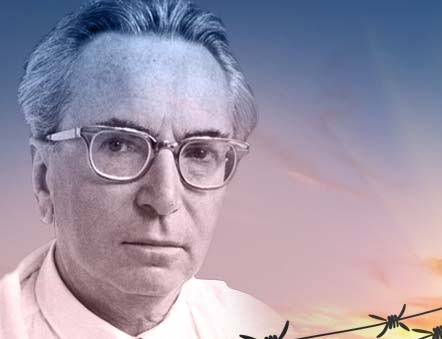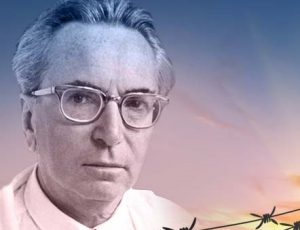The BEST: Man’s Search for Meaning

The BEST: Man’s Search for Meaning by Viktor Frankl
Reviewed by Chaim Strauchler
Summary: Viktor Frankl, famed psychotherapist and Holocaust survivor, published Man’s Search for Meaning in 1946. The book recounts his experiences as a prisoner in Nazi concentration camps to frame his psychotherapeutic method. His approach seeks to help patients (and readers) identify a purpose in life to feel positive about, and to imagine that outcome. According to Frankl, the way prisoners thought of the future affected their survival in the camps.
Everything can be taken from a man but one thing: the last of the human freedoms—to choose one’s attitude in any given set of circumstances, to choose one’s own way.
When we are no longer able to change a situation, we are challenged to change ourselves.
Between stimulus and response there is a space. In that space is our power to choose our response. In our response lies our growth and our freedom.
 Why this is The BEST: This year, as we enter Sukkot – the holiday of joy and gratitude, we do so with a deeper appreciation for human limitation and our individual mortality. Pandemics do that. We will experience joy, but differently. Frankl argues that we cannot avoid suffering but we can decide how to cope with it, find meaning in it, and move forward with renewed purpose. At the heart of his theory, known as logotherapy, is a conviction that the primary human drive is not pleasure but the pursuit of what we find meaningful.
Why this is The BEST: This year, as we enter Sukkot – the holiday of joy and gratitude, we do so with a deeper appreciation for human limitation and our individual mortality. Pandemics do that. We will experience joy, but differently. Frankl argues that we cannot avoid suffering but we can decide how to cope with it, find meaning in it, and move forward with renewed purpose. At the heart of his theory, known as logotherapy, is a conviction that the primary human drive is not pleasure but the pursuit of what we find meaningful.
Frankl’s book is a study in human power to endure suffering, but its message applies equally to our control over how we experience happiness. John Milton wrote in Paradise Lost, “The mind is its own place, and in itself can make a heaven of hell, a hell of heaven.” In Sukka 53a, Hillel said of the celebration of Sukkot’s simhat beit ha-shoeva, “If I am here, everyone is here; and if I am not here, who is here?” While Rashi famously explains that Hillel spoke these words in God’s name, Tosafot and Akedat Yitzhak note that they me also be interpreted regarding the human experience.
While acknowledging the limited control that people have over so much of their lives, Frankl argues for the ultimate power that we each have over our minds in how we respond to our circumstances. For Frankl, this isn’t an excuse for injustice, but a claim for ultimate human meaning and purpose.
Cautionary Instructions: Frankl’s argument that prisoners who survived the camps did so because they retained hope for the future implies that those who did not survive did so because they did not possess this sense of meaning. While not explicitly stated, such a conclusion is obviously problematic.
Click here to read about “The BEST” and to see the index of all columns in this series.
[Published October 1, 2020]
